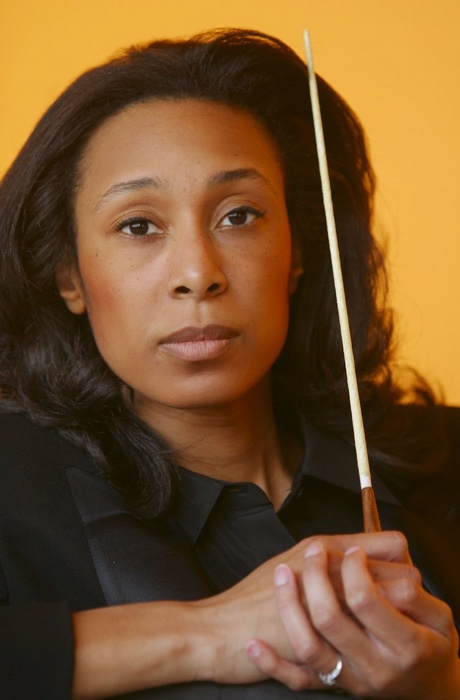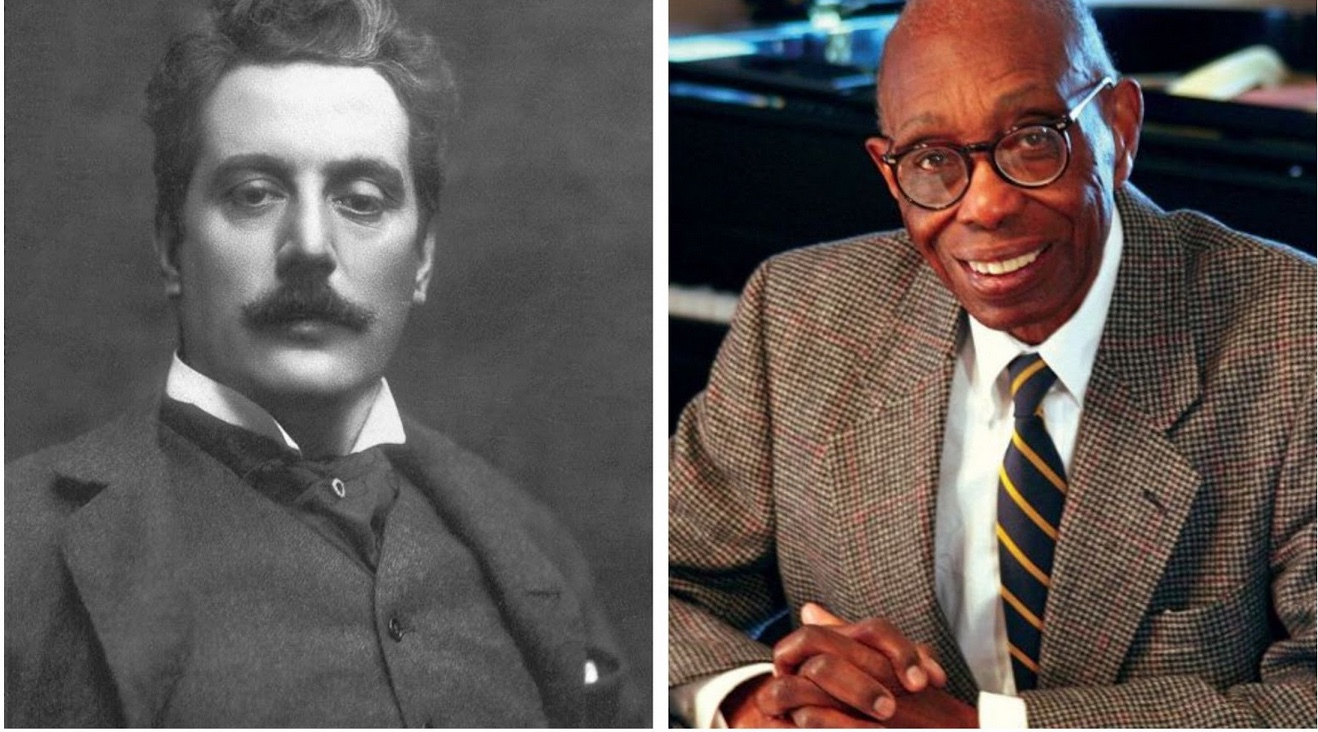by Jarrett Hoffman

Today’s Tuesday Noon concert at the Church of the Covenant in University Circle features Oberlin visiting organ professor Christa Rakich in the first of two programs of selections from J.S. Bach’s Art of Fugue. You can hear the music in person again beginning today, or enjoy it online.
IN THE NEWS:
Tuesday Musical is extending the deadline for its 66th annual Scholarship Competition. Applications will now close at midnight on Sunday, February 6. Apply online here. The competition itself will be held in Akron on Saturday, March 19, “with significantly increased $ awards.”
Season 3, Episode 2 of the Canton Symphony’s Orchestrating Change podcast is now available. The featured guest is Jeri Lynne Johnson (pictured), founder of DEI Arts Consulting, and founder and artistic director of Philadelphia’s Black Pearl Chamber Orchestra — a model ensemble for issues of diversity, equity, and inclusion for over a decade. Listen here.
TODAY’S ALMANAC:
This date in history was an important one for Giacomo Puccini (below, left). The first of February brought the premieres of Manon Lescaut in 1893 and La bohème in 1896, the latter led by a young Arturo Toscanini, with both premieres taking place at the Teatro Regio in Turin.
Bohéme is one of the most frequently performed operas, but it’s interesting to note that at its premiere, critics were divided, and the audience was said to lack enthusiasm. Imagine if that had been the end of it.
Another fun fact about La bohème: Toscanini conducted it again 50 years after the premiere, this time with the NBC Symphony, and the recording made from that occasion is the only one of a Puccini opera led by its original conductor. Listen to the aria “Che gelida manina” from that broadcast, featuring tenor Jan Peerce, cued up here.
Moving forward another 50 years, George Walker’s Lilacs first saw the light of day on February 1, 1996, when it was performed by soprano Faye Robinson and the Boston Symphony, led by Seiji Ozawa. The piece, which sets a text by Walt Whitman written in 1865 after the assassination of Abraham Lincoln, earned Walker (above, right) a Pulitzer Prize.
Speaking of recordings featuring performers from the premiere, Faye Robinson joins Timothy Russell and the Arizona State Symphony Orchestra in Lilacs here.
Stepping into the future for a moment, soprano Latonia Moore will take up the solo role in Lilacs next month at Severance, March 3-5, joining Franz Welser-Möst and The Cleveland Orchestra. Get tickets here.
And speaking of poets whose music has been set by Walker, this date in 1901 brought the birth of Langston Hughes, that important figure of the Harlem Renaissance for whom poetry was only one talent — he was also a playwright, novelist, and activist.
Taking a moment to recognize connections to Northeast Ohio, Walker walked the grounds of Oberlin Conservatory after enrolling at age fourteen. And Hughes studied at the first public high school in Cleveland, Central High, during which time he was also active in the Playhouse Settlement, the organization that later became Karamu House.
Many a composer has been inspired by Hughes’ writings, perhaps none moreso than Margaret Bonds, whose artistic collaboration with the poet was long and fruitful. In the case of Walker, we have his setting of Hughes’ In Time of Silver Rain, and a recording as close to the source as you can get: soprano Alison Buchanan is joined by Walker himself at the piano here, part of the album George Walker: Great American Concert Music.




